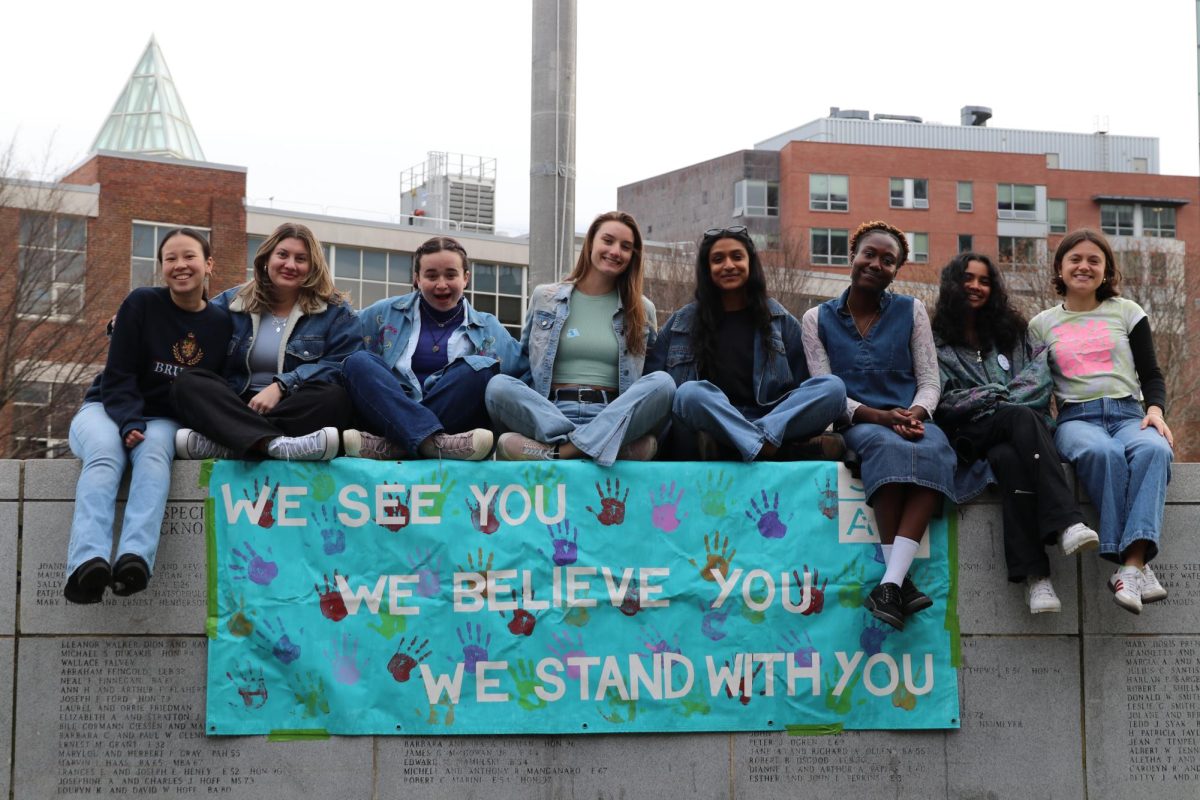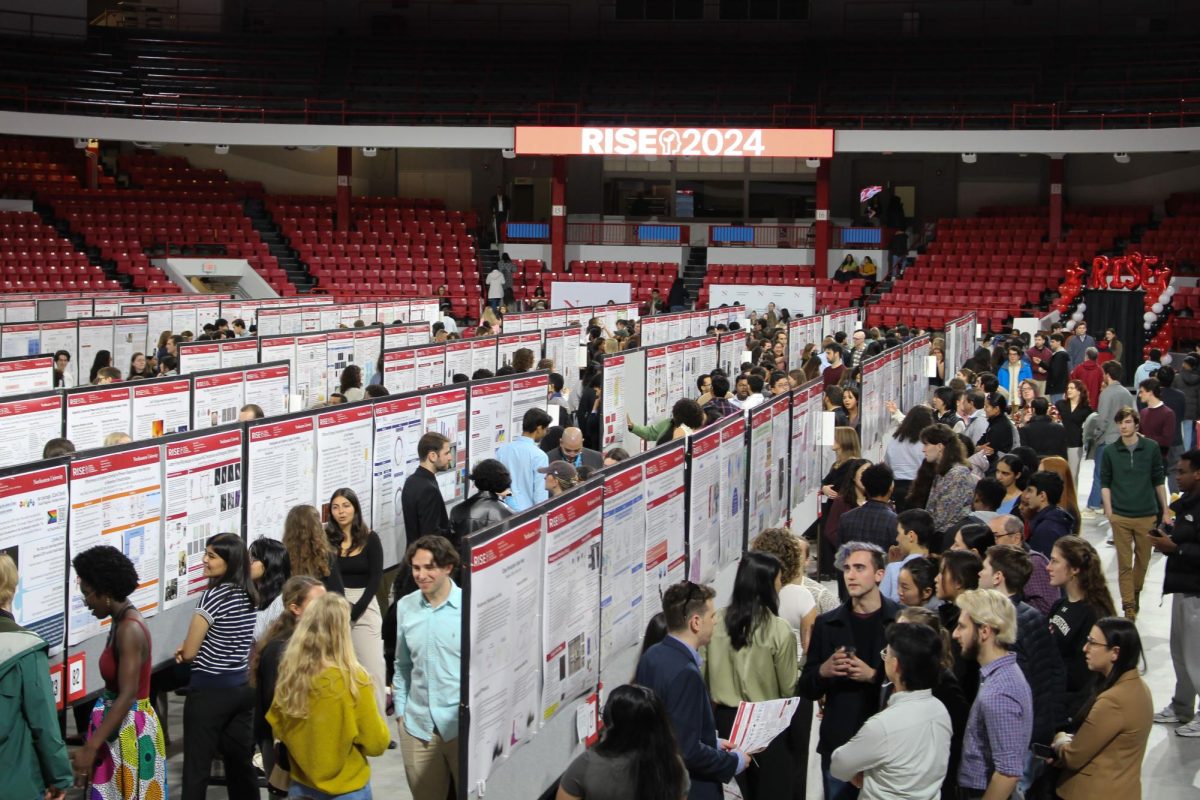
News Staff Photo/Matt Greene
By Kenny Sokan, News Correspondent
A panel of students reflected on their experiential learning experiences on Wednesday as part of a discussion related to the recently created Presidential Council on Diversity and Inclusion (PCDI).
The event, dubbed “I am Northeastern,” was the second installment in a series of six educational discussions on civic sustainability presented by the College of Social Sciences and Humanities (CSSH) and the Office of Student Affairs. It was preceded by a panel of faculty experts who in February discussed hate on college campuses.
The PCDI was created to aid Northeastern in becoming an all-embracing and encompassing community. “I Am Northeastern” focused on the school’s pledge, which the session was named after, as it relates to the experiences of the student panelists.
The discussion was wide-ranging, touching on a number of topics that included solidarity and marginalization.
Victoria Porell, an international affairs major and self-proclaimed activist, co-oped in research positions for various organizations in Serbia; Egypt, Syria, Jordan, Geneva and the Western Balkins. In her introduction, she spoke of solidarity.
“A key distinction that comes to mind when I think of solidarity is engagement with another person, community or population,” Porell said when asked about the concept. “Solidarity is not charity … solidarity is understanding peoples issues, understanding how they are tied to your own, and doing what you can to help those people fix their problem.”
The event became more contentious when Arthur Maserjian, a business major, raised the issues of discrimination and prejudice at Northeastern. He was president of Northeastern Hillel when a menorah was vandalized on campus last winter.
“Myself and my friends have been singled out for humiliation, marginalization, by some faculty members for our views and backgrounds,” Maserjian said.
Maserjian asked what the university is doing to address such issues.
Gia Barboza, an African American studies professor, responded in support of the university.
“There is, of course, hypocrisy that is prevalent because people are human,” Barboza said. “But I think for the most part, we as a community, value certain things which is what we are here to talk about in a very positive way.”
Uta G. Poiger, the interim dean of the CSSH, interjected, urging the audience not to believe that the incidents mentioned by Maserjian are representative of the NU community as a whole.
In an opening address for the event, Poiger explained that the goal of the discussion series is to analyze conflict, understand difficulties that individuals and groups have with one another and ultimately contribute to the promotion of peace. She reiterated President Joseph E. Aoun’s hopes for the university to be a model for society and the world.
In talking about the Northeastern pledge, a guiding message for students in terms of off-campus relations, the panelists seemed to advocate for a world pledge because of their experiential learning experiences. Wendy Chu, a freshman political science major, asked panelists to explain the distinction between this and the school pledge in terms of solidarity, and how to apply it at the university.
Another panelist, Harrison Craig, an international affairs major with a minor in psychology, responded.
“Transitioning to and from Northeastern from places abroad, can be really challenging,” he said. “But part of what sets Northeastern aside — something that makes it so unique — is that students are constantly coming and going and it really is all about this global partnerships that students forge over the years. Ironically, it might seem sort of broad and ambiguous, but constantly coming and going and learning new perspectives and learning more about ourselves in the process, I think that that is something that serves to define the Northeastern community.”
Senior Brandon Welch, a history major, expressed concerns with references by the panelists to the university as “they” instead of “we,” questioning how to incorporate the values discussed and apply it to the Northeastern community as a whole.
“A lot of the decisions made in the school are made at a administration level and done without the consultation of students,” Porell said. “That is where I think the ‘they’ rather than the ‘we’ comes in. If students, and faculty and community members had more say in made at the administrative level in the future, I think I would help develops this sense of ‘we’ rather than ‘they.’”
After the event concluded, Porell said she thought the panel produced fruitful discussion.
“I think the panel went really well,” she said. “Obviously the panel was set up by the president’s office as an initiative with the university to promote these values that Northeastern likes to seem like they have, but I’m glad that we got to have a little bit of a discussion about how the university itself can do better at embodying these values.”











